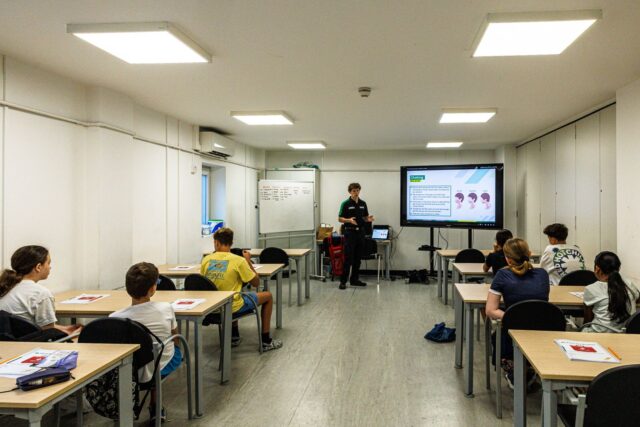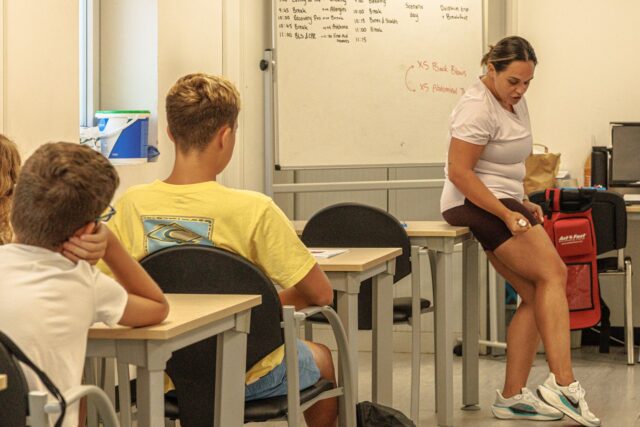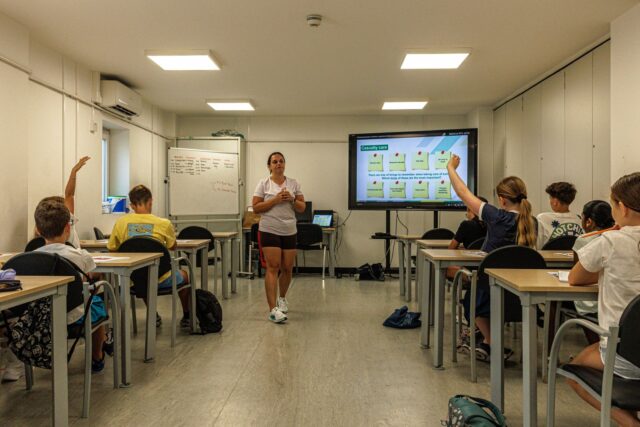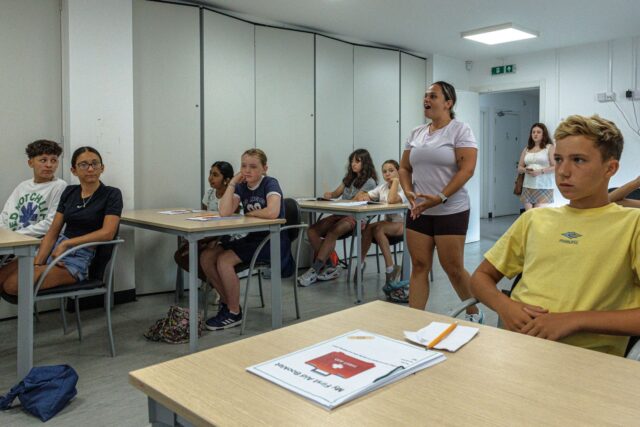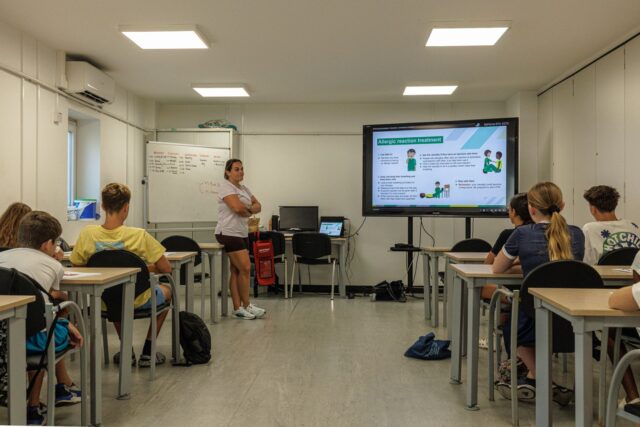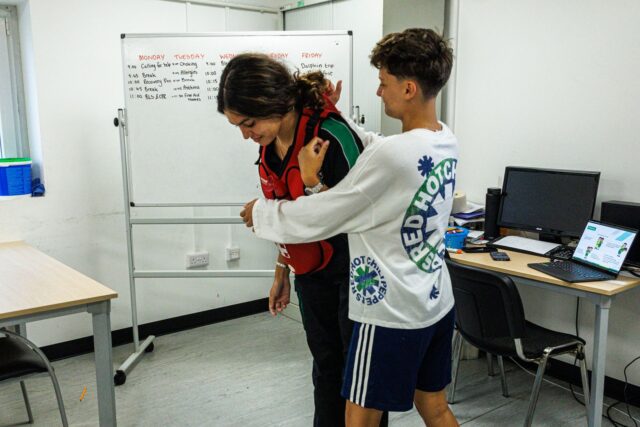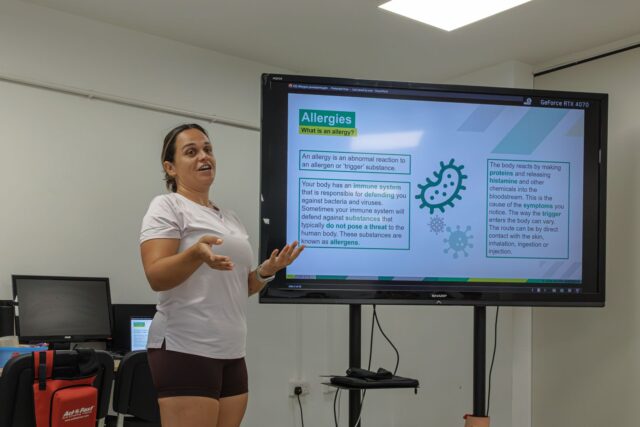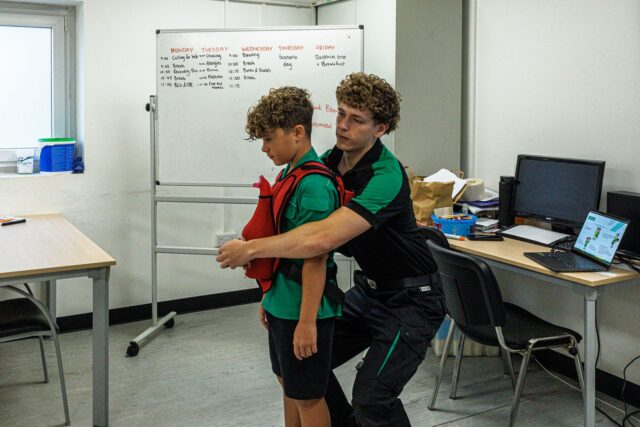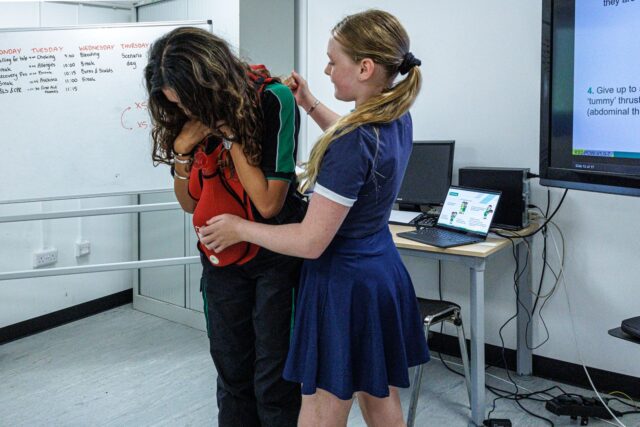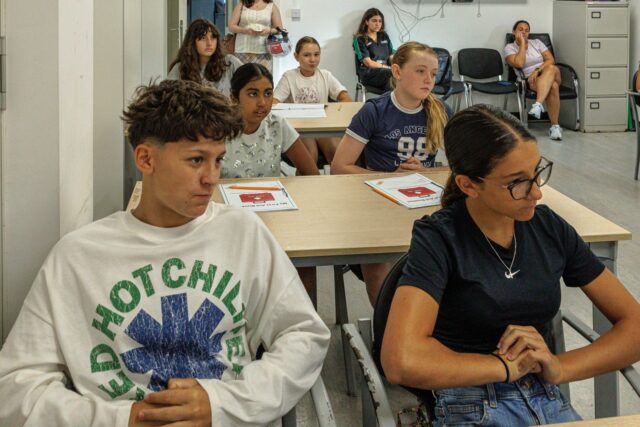St John Ambulance inspires future paramedics
Photos by Johnny Bugeja
By Neve Clinton
St John Ambulance held Young First Aider summer camps throughout July and August, with two weeks dedicated to seven to 10-year-olds and another two weeks for 11 to 15-year-olds, giving children an insight on first aid, CPR, Incident and Casualty Management and more.
The workshops were led by St John cadets Jesse Canepa, Alex Licudi and Amelia Dickie, who delivered educational presentations, videos, and first aid demonstrations to the children, and guided them as they progressed through their workbooks.
The weekly itinerary included different classes each day. Mondays focused on how to call for help, putting someone in the recovery position, conducting Basic Life Support and performing CPR.
Tuesdays covered choking, allergies and asthma, with treatment for bleeding, burns and scalds on Wednesdays.
On Thursdays, they had a ‘scenario day’ where they put into practice what they had learnt by applying their knowledge and skills to casualty simulations in a charade-like game and, on Fridays, they enjoyed a fun outing including a dolphin adventure and restaurant breakfast.
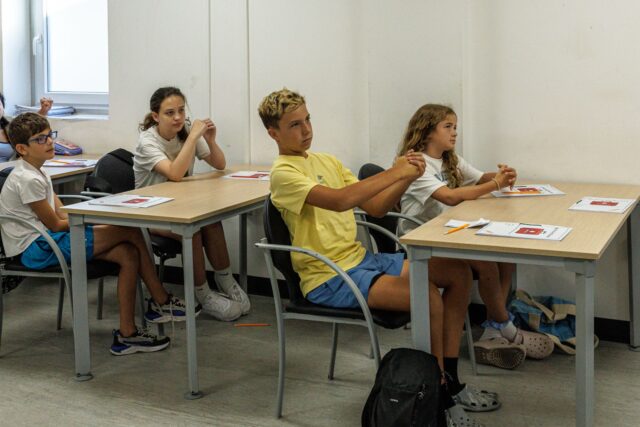

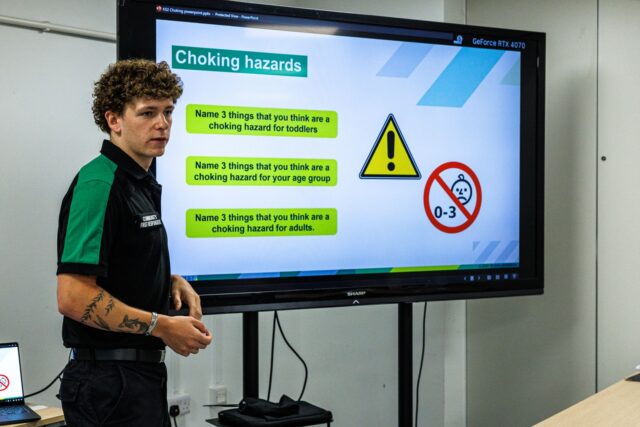
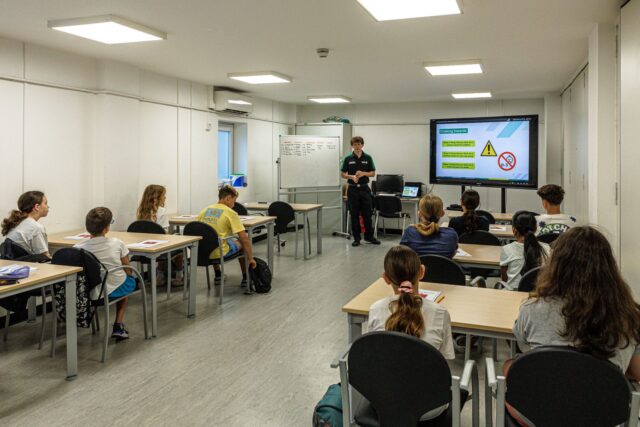
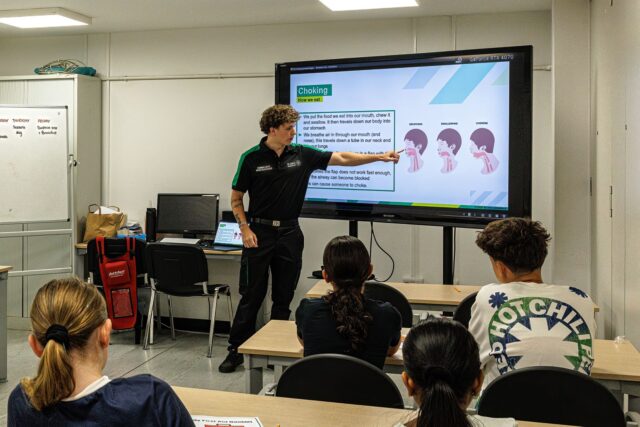
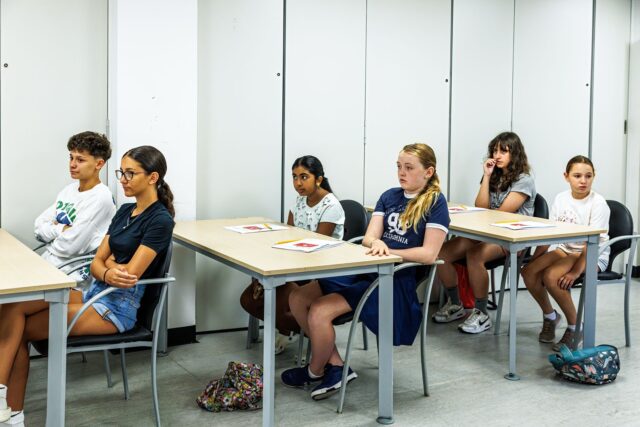
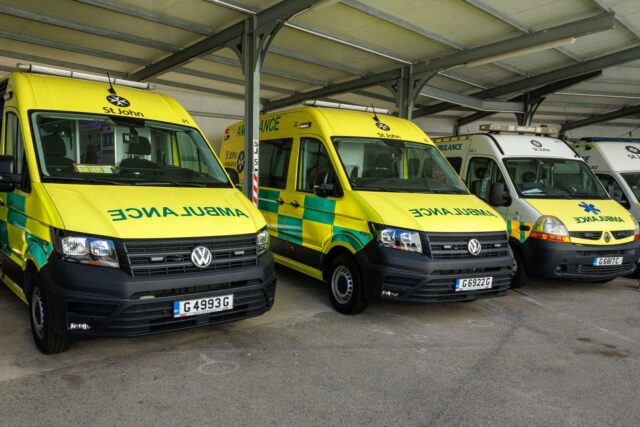
Jesse Canepa told the Chronicle that the Young First Aider courses aim to spread awareness and build confidence in first aid skills:
“I think it's not taught enough. So, I personally think it should be taught more in schools. This workshop allows people to come in and learn those first aid skills which are vital to survival sometimes.”
“You know, it's so common for people to have asthma, allergies, choking, it's so common for people to have those these days and not enough people know how to respond. So, we're just kind of trying to spread that, how to act properly.”
He explained, “St John has always been an organisation where we provide training sessions to the public so we have our ‘first aid at work’ and stuff like that. But it's just nice to be able to give it to the children as well.”
“Our First Aid at Work [courses have] a cut-off limit… but these workshops allow you to learn from a young age”.
He thinks this is valuable because it teaches children, early on, the importance of acting calmly while following all the steps correctly in a crisis situation, skills which, having covered the foundations in this one-week training course, can be consolidated in the future when they do First Aid at Work for example, helping them retain what they have learnt for longer.
They have also covered the “use of AEDs, so we've told them about the defibrillators, that they're all around Gibraltar, raising awareness, that they're by schools, beaches and stuff like that, and how to use those properly as well”.
As a community first responder and student paramedic in the UK himself, Mr Canepa said it means a lot to him to see children so interested in learning first aid, as, from his experience responding to jobs in the UK, it was alarming that “not enough people know first aid”.
“So, it's really nice to see that people are so interested at a young age, and maybe because there's like some future paramedics or something, it's like really nice to think about” he added.
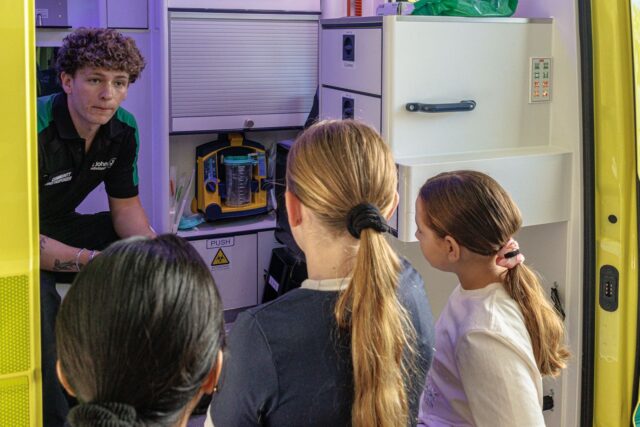
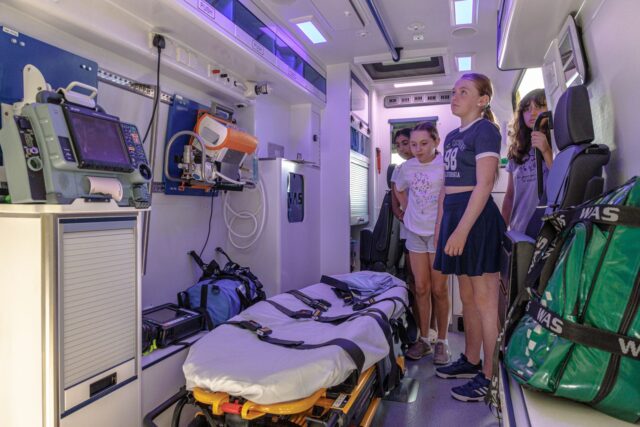
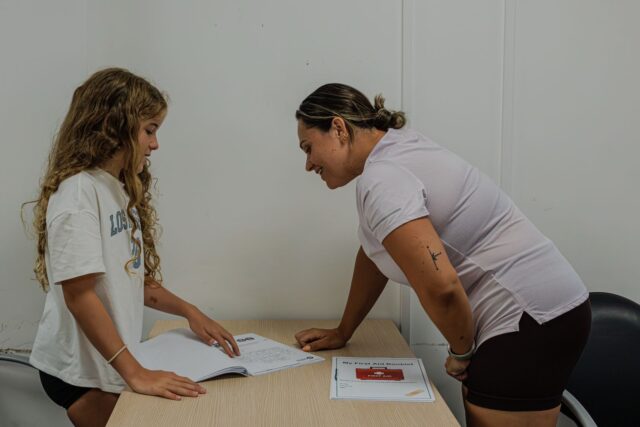
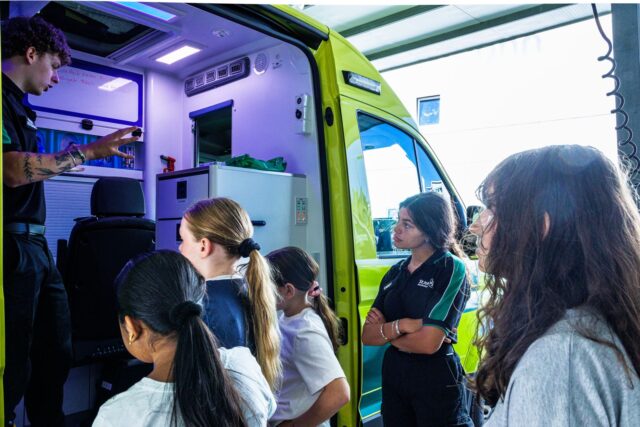
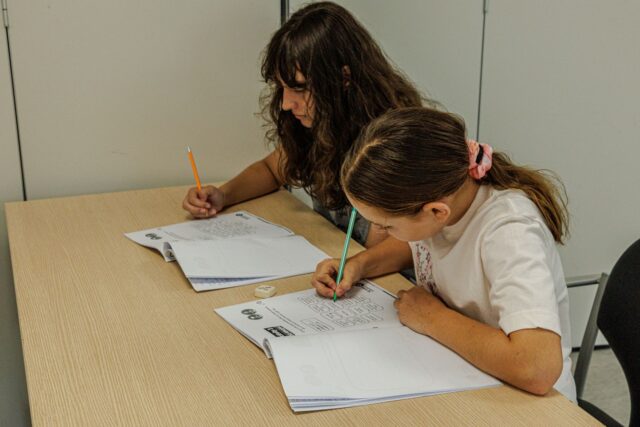
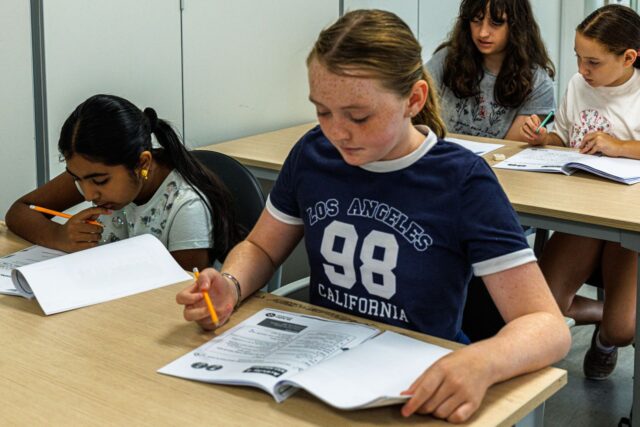
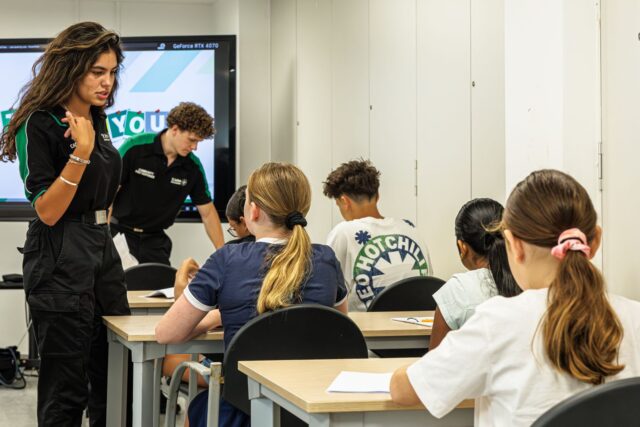
Nia Liu, age 14, said she learnt “how to do CPR, I’m not very good at it but I did it.”
“I learnt how to tell if someone is choking and how to help them if they are choking, and I learnt what to do if someone is having an allergic reaction”.
She added that she struggled with CPR, finding it physically difficult “because I’m just like a child, and I have a bit of stage fright, so when they called me up to do it I did have to overcome that. It was a bit scary”.
For her, it is important to learn these skills because “if you’re with a bunch of other people maybe one of them knows how to do it, but if you’re just with yourself and maybe like your younger sister has an allergic reaction or if they start choking, you need to know how to do it because you can save their life and, if you don’t do it, they might die.”
She said she feels somewhat prepared to help people now.
“I would say I am, but I’d obviously be a bit nervous just in case I do it wrong”, adding that she did not feel confident she could save someone’s life on her own but could “keep them alive until the first responders come.”
Aurora Truman, age 11, said she had learnt skills that could help her save someone “when they’re choking or when they might be unconscious or something like that” after covering “what hazards there are, basically a bunch of allergies, choking, and yesterday we did calling for help” at the workshop, adding “it’s been really fun”.
Molly Sacramento, age 15, said “I’ve learnt CPR, how to call for help properly, the recovery position and today we’ve just done choking analogies”, adding that feeling equipped with the skills to save somebody’s life is beneficial because “it’s better to be feel more prepared so you can actually help in situations like that when it happens”.
Molly also said it is important to know first aid because “I don’t think that many people do as often, you know, you just call for the ambulance and wait ‘til they arrive, but I think it’s very important to be able to do something in the meantime, and especially if it’s somebody I know, I’d like to do it rather than anyone else,” adding it has been a very fun experience.
Syama King, age 11, said she was interested in starting this summer camp because “my dad’s a nurse, and my mum’s a teacher and I used to do St John’s, and when I’m older I want to be, like, a doctor or a nurse”, adding it is important to learn first aid skills in case you ever find yourself in an emergency with a casualty and there are no professionals around.
For her, the highlight has been having the opportunity to “learn about bodies” which she finds really “fun and interesting”.
Vladi Ionescu, age 12, said he had learnt how to use the defibrillators and how to do CPR on infants, adding that he thinks it is important to learn these skills because “if you’re out in public and something happens to someone, you can help them and save a life”, and felt that by the end of the week, he will be prepared to help people.
